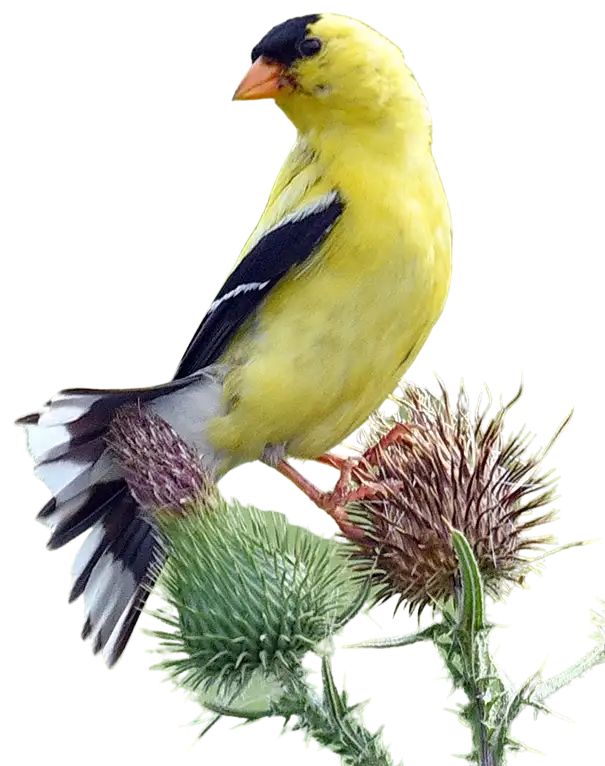Conservation
The Rochester Birding Association promotes bird conservation as an organization, and we believe all birdwatchers have a true obligation to act in the best interests of birds.
As members of a dedicated birding organization, we often feel like it is usually us-versus-them. The “us” are our kindred spirits in birdaphilia. The “them” are the masses of unaware people and policymakers we hope will appreciate what we see in the incredible world of birds.
We make dozens of little decisions everyday that influence the lives of birds—positively and negatively. Our duty is to constantly strive to minimize the negative effects, and promote the positives.
- We conserve birds primarily by protecting and preserving habitat. The natural settings birds require to fulfill their specialized ecological roles are under constant influence by humans. We strive to be the people who act to create and preserve bird habitat, especially the lesser-appreciated habitats such as grasslands, Northeastern savannahs, advanced mature woodlands, extensive mudflats and undisturbed shoreline.
- We conserve birds by conserving energy. All man-made energy-generating projects on Earth have an ecological cost that we tend to ignore. The greenest (and cheapest) energy is the energy we never use. We shall constantly strive to consume less energy: drive less and use fossil fuel efficiently, reduce how often energy-wasting appliances, electronics, and power tools are used, and heating or cooling our homes with fewer BTUs and kilowatts by beefing up insulation and weather-proofing.
- We conserve birds when we reduce predation by outdoor cats. Cats do not belong outside, and it is time for birders to stand up for the birds. We shall oppose maintenance of outdoor cat colonies, educate friends and family about the detrimental effects of outdoor cats, and push for cat-friendly public policies to keep them indoors.
- We conserve birds when we inspire newer birders. We shall recognize that new birders are not just young people—they are everyone all around us. Middle-aged and older adults, who have quietly appreciated nature even if they did not know what they saw or heard, make as good (or better) students of birding as any child. Birding brings us social satisfaction as a group activity, and those new adult birders will help us with conservation sooner than later. We shall spread the spark of bird appreciation to our peers as well as to the young people we meet.
- We conserve birds when we use chemicals responsibly. Humans will rely on pesticides, medications, mechanical additives, cleansers & sanitizers, and food processing chemicals for a long time to come. We shall use chemicals only as needed and dispose of them with care, even when inconvenient. Less flushing of medicine and detergents to the shared waters of our planet, less errant spreading of fertilizers and insecticides, balanced with the judicious disposal of treated wood, paints, oils, plastics, and the thousands of other chemical-laden things in our lives.
- We conserve birds when we place ecological considerations above family economics, even for something as simple as a cup of coffee. As coffee drinkers, we are the ones who influence the coffee trade. Every dollar spent on coffee that is not grown in a way that conserves bird habitat is a little vote against the survival of neo-tropical migrants. Shade-grown and fair trade coffee has a greater chance of conserving the migratory birds we enjoy in Upstate New York. If we do not buy it, it will not be grown, and the birds will lose.
- We conserve birds when we keep feeders clean. Everyone who maintains a feeding station has contributed to the spread of avian diseases; very few bird feeding enthusiasts take the time to clean feeders properly or at all. We shall set a high bar for sanitation and reduce bird diseases with feeders that are free of debris, bird crud, and the bacteria that threaten their health. Birds do not need the stress of feeder diseases if we can prevent it.
- We make big and little bird conservation choices every day. May we continue to be the birders who work harder, inspire more, and conserve birds in all areas of our lives.
- Your Help Is Needed! Issues critical to the conservation of birds crop up all the time in Rochester and we need a team of volunteers poised to make a stand in favor of birds. Amy Kahn is the RBA Conservation Chair. If you have questions or concerns regarding bird conservation issues in the Rochester, NY and Genesee Valley region, please contact her via email.



